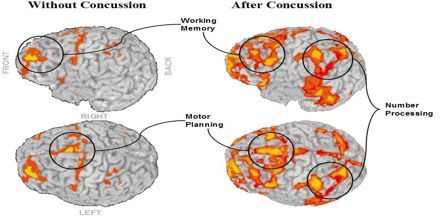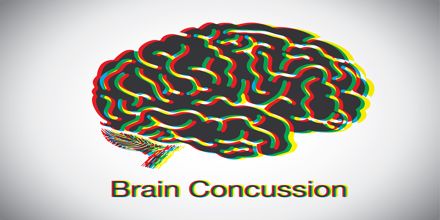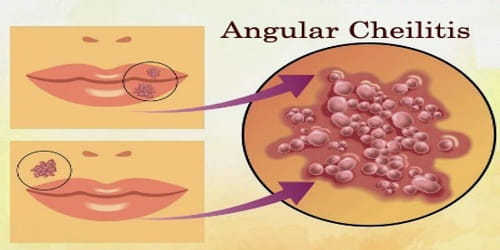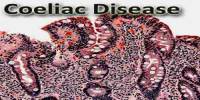A concussion is a mild traumatic brain injury (TBI). It can happen after an impact to the head or after a whiplash-type injury that causes the head and brain to shake rapidly back and forth. Concussions are generally not life-threatening, but they can reason severe symptoms that need medical treatment. A concussion is a traumatic damage that results in an altered mental state that may include becoming unconscious.
Anyone can become injured during a fall, car accident, or any other daily activity. If you partake in impact sports such as football or boxing, you have an increased risk of getting a concussion.

Signs and symptoms of a concussion
The majority people with a concussion have an excellent recovery from symptoms experienced at the time of the injury. But for several people, symptoms can last for days, weeks, or longer. In general, recovery may be slower among older adults, young children, and teens. Those who have had a concussion in the past are also at risk of having another one and may find that it takes longer to recover if they have another concussion.
The symptoms may start instantly, or they may not build up for hours, days, weeks, or even months following the injury. The signs of a concussion may contain:
- brief loss of consciousness after the injury
- memory problems
- confusion
- sensitivity to light or noise
- drowsiness or feeling sluggish
- dizziness
- slowed reaction to stimuli
- double vision or blurred vision
- balance problems
- headache
- nausea or vomiting
- sensitivity to light or noise
During the recovery period after a concussion, you may experience the following symptoms:
- irritability
- sensitivity to light or noise
- difficulty concentrating
- mild headaches
Symptoms in children
Head trauma is very familiar in young children. But concussions can be complex to identify in infants and toddlers because they may not be able to explain how they experience. Nonverbal clues of a concussion may include: Appearing dazed; Listlessness and tiring easily; Irritability and crankiness; Loss of balance and unsteady walking; Crying excessively; Change in eating or sleeping patterns; Lack of interest in favorite toys etc.

How is a concussion diagnosed?
Any person who may have had a concussion needs to perceive a doctor. If a doctor thinks that you have a concussion, he or she will inquire questions about the injury. Your doctor may ask you questions that test your aptitude to pay concentration and your knowledge and memory. Your doctor may also try to find out how rapidly you can solve problems. He or she may also show you objects and then hide them and ask you to recall what they are. Then the doctor will check your strength, balance, coordination, reflexes, and sensation.
If a doctor or emergency room visit is essential, your doctor will commence with questions about how the injury happened and its symptoms. Your doctor might then perform a physical test to determine what symptoms there are.
In the case of severe symptoms, your doctor may request a magnetic resonance imaging (MRI) scan or a computerized tomography (CT) scan of the brain to check for severe injuries. In the case of seizures, your doctor may also perform an electroencephalogram (EEG) test, which monitors brain waves.
How is a concussion treated?
Treatment for a concussion depends on the relentlessness of your symptoms. You might require surgery or other medical procedures if you have bleeding in the brain, swelling of the brain, or a severe injury to the brain. However, most concussions do not necessitate surgery or any most important medical treatment.
During the first 24 hours after the injury, your doctor may inquire that someone wakes you every two to three hours. This ensures that you haven’t gone into a coma and also allows someone to check for signs of harsh confusion or irregular behavior.
Who’s at risk?
Most cases of concussion occur in children and teenagers aged 5 to 14, with the two most general causes being sporting and cycling accidents.
Falls and motor vehicle accidents are a further common reason of concussion in older adults.
People who commonly play competitive team sports such as football and rugby have a higher risk of concussion. Participating in a high-risk sport, such as football, hockey, soccer, rugby, boxing or other contact sport; the risk is further increased if there’s a lack of suitable safety equipment and supervision
















